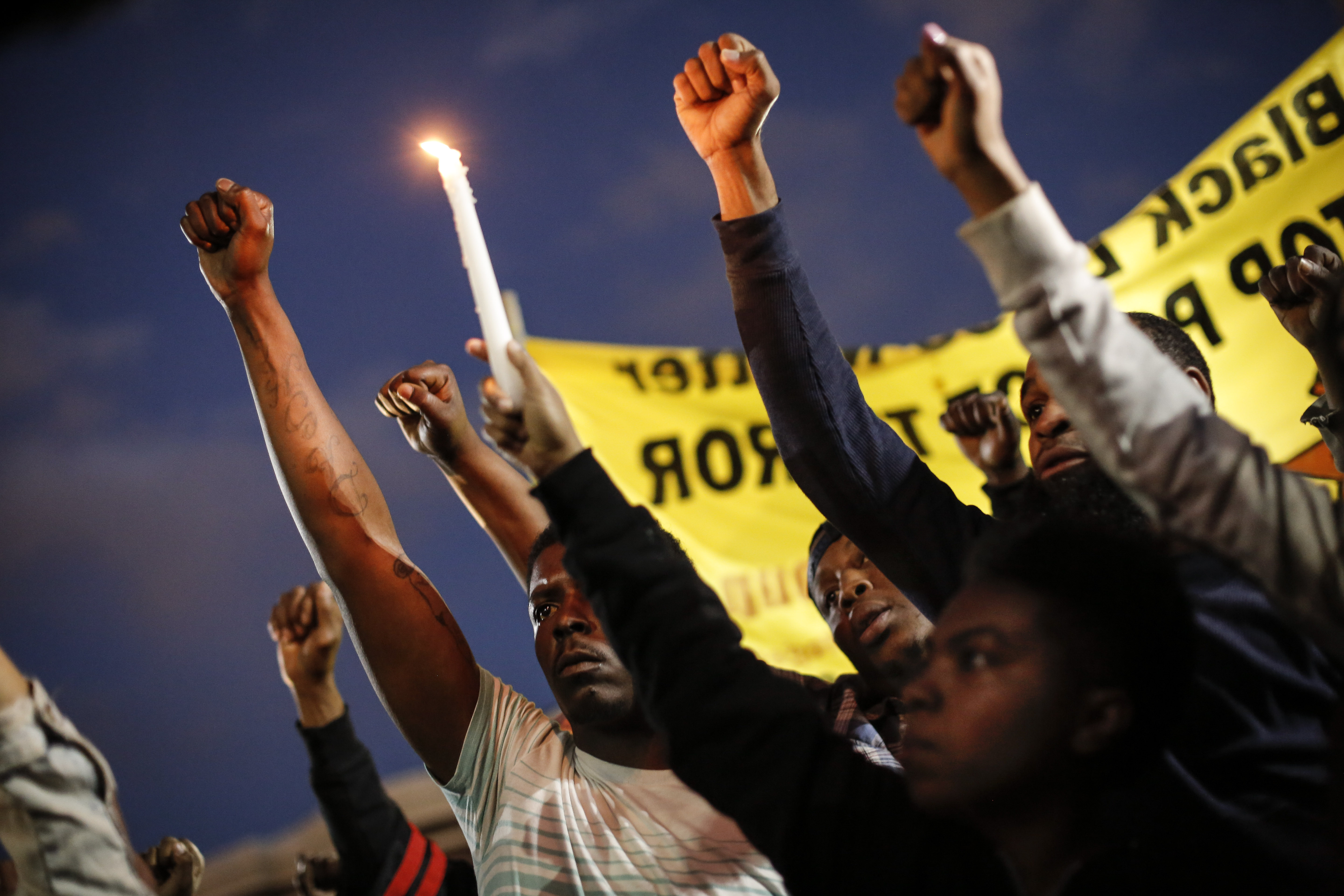Moderate liberals' weak case against riots
Do riots really spark a political backlash? Not so fast.


A free daily email with the biggest news stories of the day – and the best features from TheWeek.com
You are now subscribed
Your newsletter sign-up was successful
After the Baltimore unrest last month, there were two divergent reactions: The center-left, center, and right reacted with stunned outrage, arguing that any such violence or looting is illegitimate. The left countered, arguing that this was a double standard given continual police violence, and that rioting might even work politically, by drawing attention to otherwise ignored problems.
Jonathan Chait, somewhere between the center and the center-left, has returned to the argument armed with new evidence. It comes in the form of a draft study from Omar Wasow, an assistant professor at Princeton. Studying the 60s and 70s, Wasow finds that violent protests are associated with a statistically significant decline in support for the Democratic Party, while nonviolent protests had the opposite effect.
It's an interesting paper that provides a solid argument that the riots of the late 60s were tactically unwise, and may have even swung the 1968 election to Richard Nixon. However, applying this lessons of this model to 2015 is a tricky proposition.
The Week
Escape your echo chamber. Get the facts behind the news, plus analysis from multiple perspectives.

Sign up for The Week's Free Newsletters
From our morning news briefing to a weekly Good News Newsletter, get the best of The Week delivered directly to your inbox.
From our morning news briefing to a weekly Good News Newsletter, get the best of The Week delivered directly to your inbox.
If we stipulate that riots tended to lead to a loss in support for Democratic candidates back in the 60s and 70s, we ought to keep several other factors at the front of our mind. First is crime in general. From the early 60s to the mid-70s, crime of all sorts was headed towards the stratosphere. The murder rate more than doubled, and stayed there. The overall violent crime rate tripled, and kept increasing. Without question, that powerfully reinforced the tough-on-crime politics of Republican candidates like Nixon. On the other hand, it's quite clear that as the crime rate has returned to early 60s levels, the political viability of such a stance has correspondingly faded. Today's Republicans are talking about prison reform, not Willie Horton.
Second is relative scale. It seems plausible that the power of the backlash reaction would be correlated with the extent of the damage. The 60s riots were quite large: During the 1965 Watts riot, for instance, there were 34 people killed, 1000 injured, and $40 million in damage (about $300 million today). In the 1968 DC riots, there were 10 people killed and $13 million in damage (about $88 million today). Those are just two among dozens of similar outbreaks. The recent riots in Baltimore were small by comparison, with no deaths and about $9 million in damage.
That leads directly to my third point, which is the smallness of the overall effect. Wasow's analysis shows that a county "exposed to black-led violent protest activity...is associated with a 1.12 to 1.55 percentage point decline in Democratic vote share." That conceivably could have tipped the 1968 election, which was extremely close, but it wouldn't have mattered in 1972, when Nixon won by 23 points.
Fourth is whether riots might lead to better policy from the existing government, at the cost of a hit to public opinion. For instance, when Martin Luther King was assassinated, sparking days of chaos in many American cities, only a week later Congress passed the Fair Housing Act.
A free daily email with the biggest news stories of the day – and the best features from TheWeek.com
All these complicate a blunt application of Wasow's thesis to today. Perhaps with crime low and falling, riots simply won't incur the same political backlash as they once did. America is also much browner than it was in 1968, which could also weaken the overall effect. Perhaps there could be important sub-reactions within the Democratic Party, at the cost of an overall gain to Republicans. On the other hand, maybe with less violence people are less inured to it, and the backlash will be bigger.
At any rate, I'd consider the idea that riots incur political repercussions, just as I'm willing to consider the idea that riots reflect genuine anger and can result in meaningful change.
But I don't think the moderates are honestly interested in these questions.
In practice, the entire political elite basically ignores desperate, crumbling places like West Baltimore until something terrible happens. And if the response to brutal injustice is not angelic perfection, moderates like Chait cluck their tongues and deliver pious lectures about about how protesters should be more like Gandhi. It's almost as if this is about a "responsible" self-presentation and defense of the status quo more than it is about the best way to repair our shattered cities.
Ryan Cooper is a national correspondent at TheWeek.com. His work has appeared in the Washington Monthly, The New Republic, and the Washington Post.
